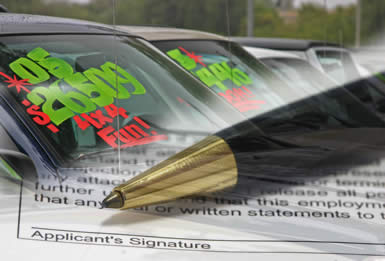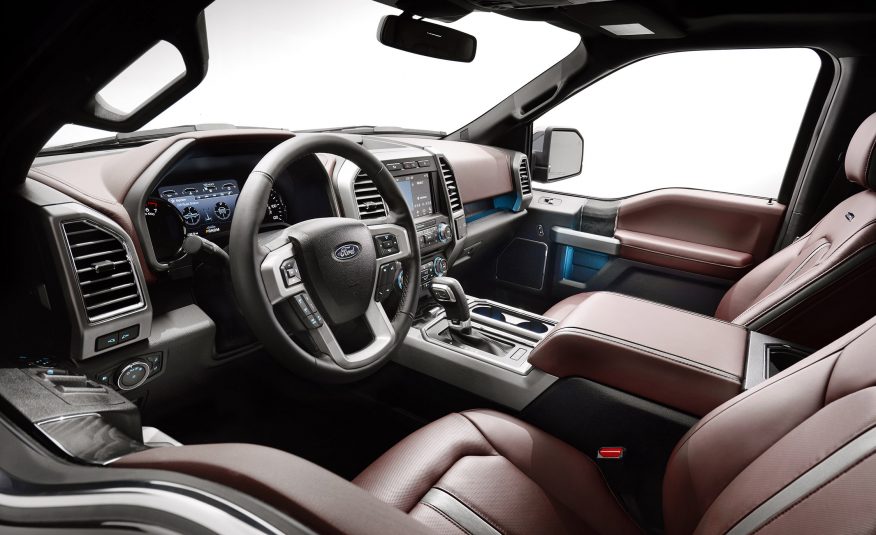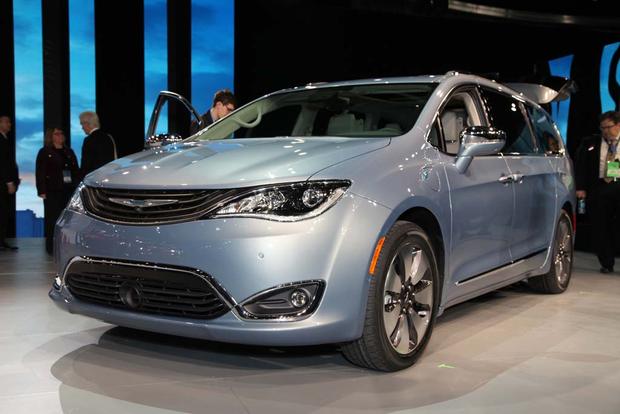-
2018 Buick Enclave “Avenir” will have ionic air purifier - April 12, 2017
-
Lease a Luxury Car for Less Than You Think - April 5, 2017
-
Shopping for a Car When Your Credit is Low - March 31, 2017
-
Aston Martin Closer to Unveiling Second-Generation Vantage - March 21, 2017
-
2017 Bentley Bentayga SUV: Offroad for $238,000 and Up - March 14, 2017
-
Pagani Huayra is Finally Here, Only $2.4M - March 9, 2017
-
Mercedes AMG E63 – For When Your Wagon Needs Drift - February 6, 2017
-
2018 Audi Q5 SUV: Enhanced Performance - January 30, 2017
-
2018 Toyota Camry Due in Late Summer - January 27, 2017
-
2018 Dodge Challenger SRT Demon Will Outstrip Hellcat - January 23, 2017
Is it Harder Now For Buyers to Get Approved For an Auto Loan?
If you’ve read a newspaper, gone online or watched the news recently, you probably have seen reports saying that car shoppers are having a very difficult time getting approved for an auto loan.
GM’s finance arm, GMAC, said that unless you have a 700+ credit score, you won’t be considered for a loan. Other banks and lenders are also tightening credit restrictions and making it harder to get an auto loan.
On the other hand though, some media reports say that there is no auto credit crisis and it’s consumers’ fears of making a big purchase that is keeping them out of dealerships.
“Credit is still available because lenders still want to make loans and dealers still want to sell cars,” says Gerri Detweiler, credit advisor for credit.com. “Someone will hear something in the media and think that it applies to them. They need to check their credit reports and scores and see where they stand.”

A Ford pre-owned dealership in Fort Lauderdale, Fla. is pictured. © 2008 AutoLoanDaily.com
So how did our economy go from easy credit with no money down to consumers with good credit being denied? Harriet Johnson Brackey, personal finance columnist for the South Florida Sun-Sentinel and Miami Herald, says that in the last six weeks, the country has had an explosion of the credit crisis, with more homes going into foreclosure and credit card limits being cut back, for example.
“People have been unwilling to loan to each other,” Brackey says. “Everyone is scared. The crisis of consumer confidence is huge right now. Joblessness is going to become the number one factor in consumer buying decisions.”
Although the economy has gone downhill fast, the crisis could rebound fast too, says Detweiler.
“Things could change pretty quickly in the other direction,” she says. “I don’t think it will go back to the heyday lending we saw a few years ago though.”
Click here for tips on how to improve your credit score.
Other options for those with not-so-perfect credit
What options do you have if you are not in the top credit rating tier or you have been turned down for an auto loan?
Brackey says that you should try your local credit union or apply to some online lenders.
“Everyone’s been affected by the credit crisis but credit unions are in better financial shape because they aren’t dealing with the mortgage fallout,” she says.
Detweiler also encourages shoppers to try their bank or credit union for an auto loan.
“I’m a big fan of shopping around,” she says. “Try your bank or credit union first, then you can compare it with the dealer’s offer.”
Most people don’t know what their credit score is before they go to the dealer and that’s a big mistake, Brackey says.
“You should get your credit report and check for errors a couple months before you go car shopping so you have time to fix any mistakes,” she says. “If you do get turned down for an auto loan, by law, you can get a free credit report from one of the three credit bureaus (Experian, Transunion and Equifax).”
Detweiler says that “a lot of people have a feeling where their credit stands but if they have a lot of debt, it may not be as good as they think or their score might actually be better than they think.”
“If you’re cream of the crop, you don’t have to worry,” Detweiler says. “I imagine there are car loans available at all credit levels. The buy now, pay later places are more common now. There are a number of options to credit-challenged consumers.”
“There’s always the co-signer loan route option, but I’m not a fan of it because it leaves the co-signer responsible for the loan and they don’t have the rights to the car.”
Brackey explains that if you go into a dealer and they tell you they will give you an auto loan, but the rate is high, you should be concerned.
“If they offer you an interest rate of 10% or higher, you’ll know that something is wrong with your credit,” she says.

Detweiler says that if you can only get approved at a high interest rate, then maybe you should consider a different vehicle, maybe one that is cheaper.
Sometimes, consumers go into the dealership with a copy of their credit report and score and the finance manager may get a different score when they run your credit. How can this happen?
“The dealer may have a customized auto loan score,” Detweiler says. “These scores are used by the auto industry to predict how a consumer will pay on an auto loan.”
If a consumer is upside-down on their current auto loan, which means they owe more on the car than what it is worth, their chances of rolling that debt into a new auto loan are not good.
“That is the biggest problem right now,” Detweiler says. “People who are upside-down are finding they have no options. You might be stuck with what you have for a while.”
Brackey agrees, saying that rolling over debt on a current car loan is just going to put you further in the hole.
“It’s not a smart idea to take thousands of dollars of debt on an old loan and put it on a new car,” she explains. “A lot of people don’t do it because they end up stretching out the payments over time and it just keeps going up. It’s not such a great idea.”
The dealer’s take
George O’Sullivan, E-Commerce Director at Thoroughbred Ford in Kansas City, Mo., says that a year and a half ago, things in the automotive financing business were much different than they are today.
“There is a lifetime of difference,” O’Sullivan says. “A year and a half ago, someone with a 620 or 600 Beacon score was walking out of the dealership with a car and a pretty decent loan. A score of 550 could buy you a car. Most of the credit scores over 500 you could find credit for them.”
O’Sulllivan says that today, it’s less about the credit score and more about the customer’s history.
A year and a half ago, a recent college graduate or student with a student loan and two credit cards was a great risk, meaning they could easily get a car loan, he explains. Banks were looking for any excuse to give someone like this a loan. They figured they would have a good job soon and would have no problem making the payments.
“But banks have really gotten away from looking at just the credit scores, O’Sullivan says. “They’re analyzing the deals a lot more. They’re looking for an excuse not to give the loan or to increase the interest rate. The banks want to decrease their risk.”
O’Sullivan says that the second chance car business, which is customers with risky credit or credit scores below 600, has really blown up in the past 18 months to two years, following suit after the mortgage crisis.
“They were giving car loans to customers who they shouldn’t have been giving them to,” O’Sullivan says. “These were the same banks that were giving mortgages to people who couldn’t make the payments.”
A year and a half ago, someone with a 650 credit score could get a car loan with a 6% interest rate, O’Sullivan explains. Now, that same person with the same credit score would be paying 9 or 10% or even the low teens for an interest rate.
“They’re no greater risk now than they were a year and a half ago,” O’Sullivan says. “They’re probably a better candidate now because they’re still employed and have been paying their bills on time. They’re paying higher interest for the faults of the credit industry.”

A used car dealership in Fort Lauderdale, Fla. is pictured. © 2008 AutoLoanDaily.com
O’Sullivan says that although his dealership’s lending sources have decreased, they still have many options for buyers.
“A year and a half ago, we had about 40 lending sources,” he says. “Now, we still have about 30. We don’t have nearly as many sub-prime sources now though.”
While finding a good loan for a buyer is harder now, the biggest challenge for a finance manager is someone who currently has a car loan, O’Sullivan explains.
“A customer who is upside-down on their current car loan is the biggest challenge now,” he says. “All the rules that used to be in place for financing a car have all tightened up. You’re going to need more cash to put down, not be upside-down on your current loan and have a good credit score.”
When customers go into a dealer to buy a car, that dealership wants to get you financed. It’s not in their best interest to turn you down because if they can’t find you financing, they don’t get to sell you a car.
“Oh yeah, we’ve lost deals because we couldn’t get a consumer financed,” O’Sullivan says.
So what credit score do buyers need today to get a car loan with good terms?
“We can get someone good terms on a car loan with a credit score of 650, but what is a good loan today is different from what a good loan was a year and a half ago,” O’Sullivan says. “It’s harder to find the right fit for the customer, whether it’s the interest rate, terms or monthly payment.”
Is anyone still leasing vehicles?
“We’ve pretty much given up on leasing,” O’Sullivan says. “It’s not a viable option anymore for us or Ford.”
If it’s harder to get an auto loan for a new car, maybe more customers are resorting to buying a used car instead.
“Our used car business has increased a little bit,” O’Sullivan says. “But we’ve always done well with used cars. We try to stay within the one-to-one ratio, which means for every new car we sell, we sell one used car.”
What should customers do before they come to a dealership?
“Now more than ever, customers need to be wary of their credit scores,” he says. “People with 700+ credit scores can still get whatever they want. But if it’s below 700, they need to clean up their credit, be prepared to put more money down and don’t be upside-down on their current loan. These things are huge with finance companies.”
O’Sullivan says that overall, the dynamics of the lending industry have changed dramatically.
“We’re going back to how it was 10 years ago,” he says. “It’s a good thing because the banks will become more stable. It also is creating a huge opening in the second chance car business.”
Leasing vs. buying
If you’re a fan of leasing, you also might run into some trouble finding a good deal on a lease for your next car.
“Leases are way harder to get now,” Brackey says. “There are fewer of them and the terms are more restrictive. If you are going to be paying more by leasing, you have to reconsider. Leasing was usually the cheaper option, but it may not be anymore. Deciding whether to lease or buy is a real personal decision.”
Do renters have bad credit?
Here’s something a lot of consumers may not know. If you rent your home or apartment, car dealers generally are afraid to approve you because you are more of a flight risk. But with the increase of consumers who are losing their homes to foreclosure, couldn’t they now be seen as more of a financial risk?
“Homeowners in good standing on their mortgage traditionally have better credit scores than renters,” Detweiler says.
Letting renters prove that they pay their rent on time every month is something the credit score people have been working on for years, Brackey says.
“Credit bureaus have made efforts to get information from rent payments,” she says. “You should ask your landlord if he reports your payment information to credit bureaus and if not, ask him if he can.”
Have we seen the worst?
Yes, it seems hard right now to get financing for anything, but consumers should at least try. Auto loan delinquencies are up and credit standards are tighter. Experts say that things have not reached the bottom yet though.
“It’s all going to get worse,” Detweiler says. “We are not out of the woods yet by any stretch.”
Brackey says that things like the jobless rate will continue to increase.
“You’re going to have to work harder to show your credit worthiness,” she says. “Be goody-two-shoes about your credit before you buy a car.”
While both Brackey and Detweiler suggest that paying down your debt as much as possible before buying a car is one of the most important tips, Brackey says that having no debt at all is not easy for most consumers.
“There are times in your life when debt is simply part of the picture,” she says.
Read our story on how to improve your credit score in the short term and long term.
Copyright 2008 AutoLoanDaily.com. All rights reserved. This material may not be published, rewritten or redistributed without permission.
Middle photo via vegasautotitleloans.com.














